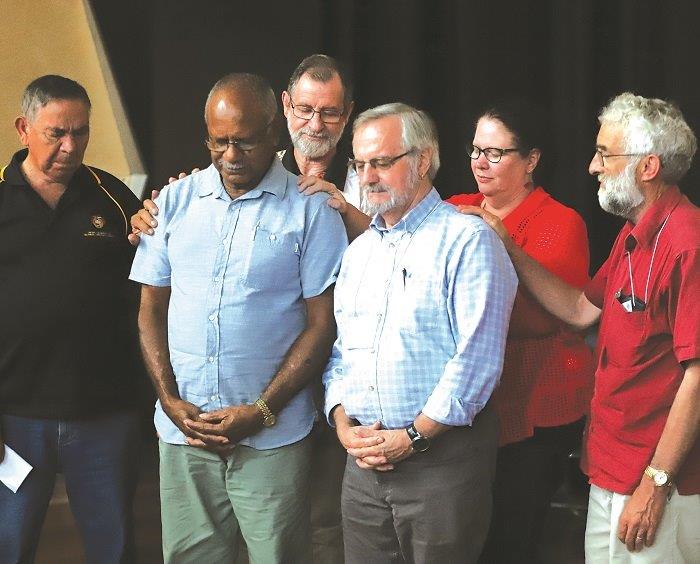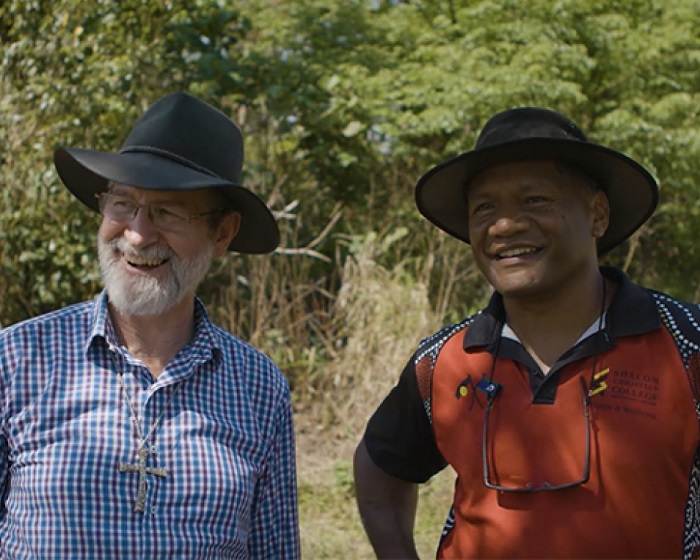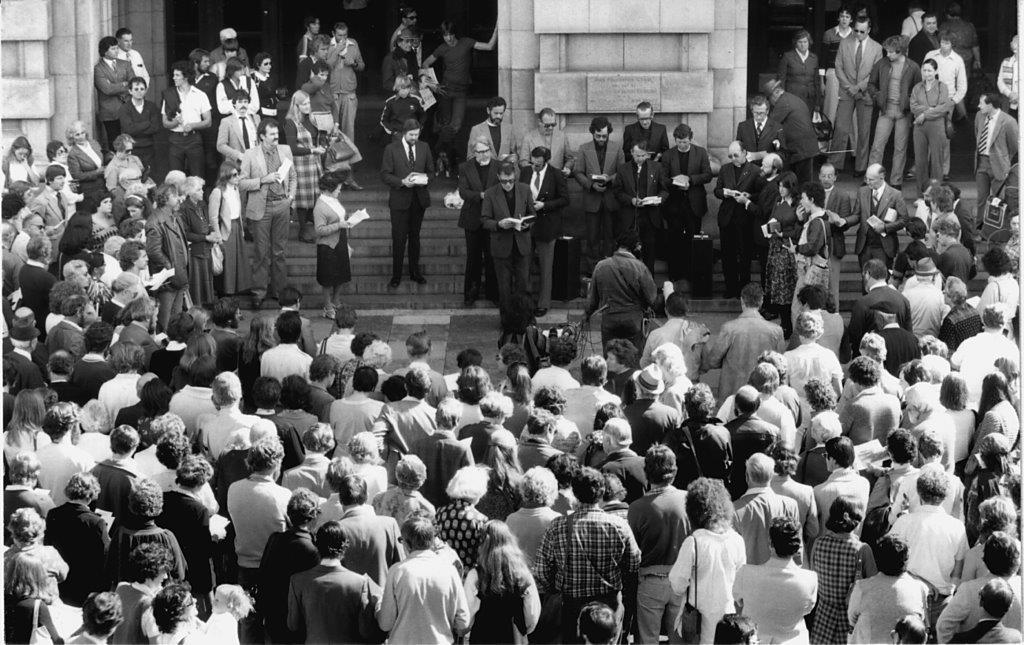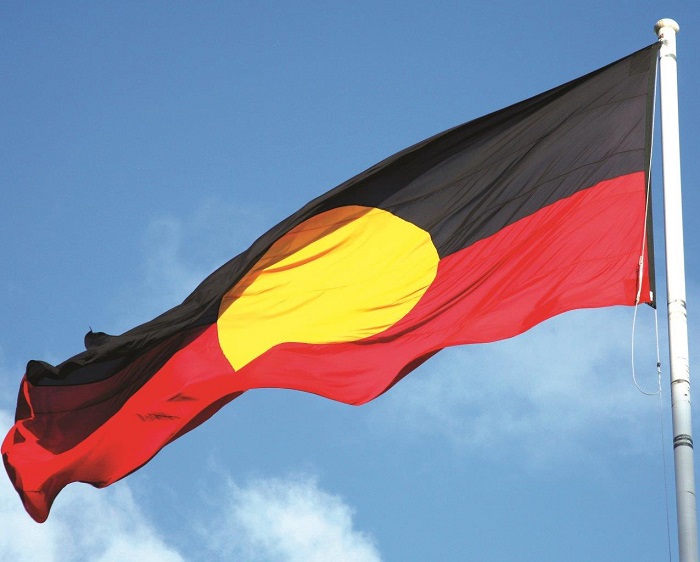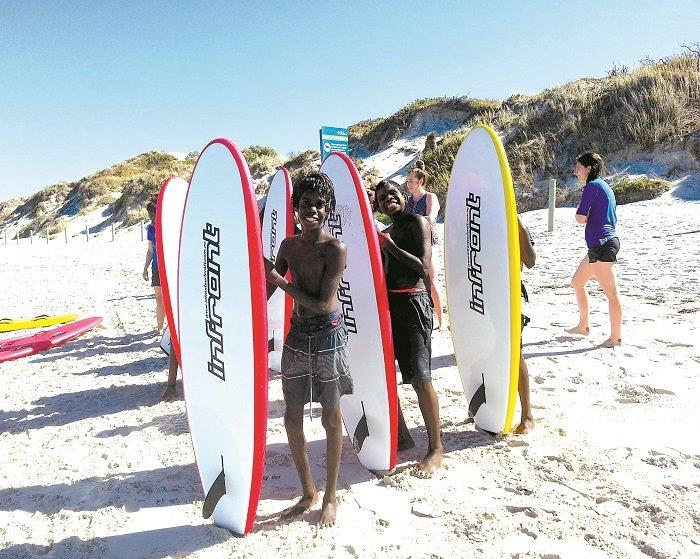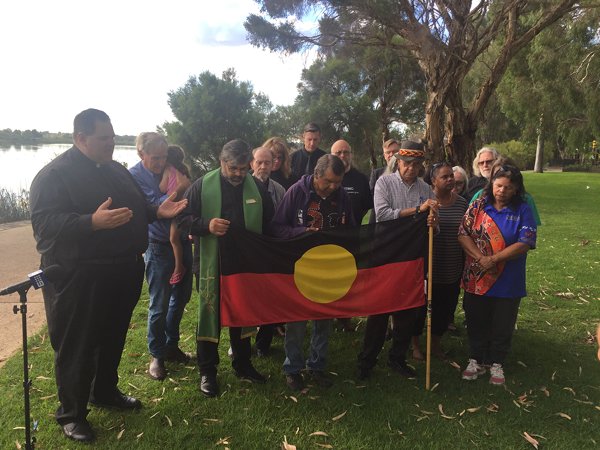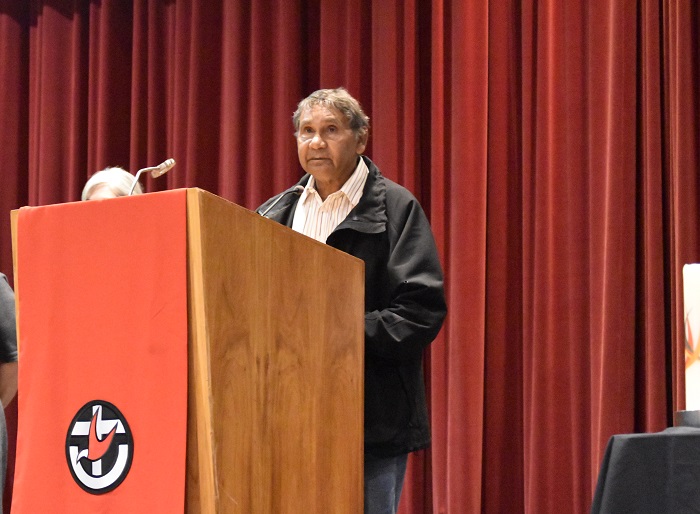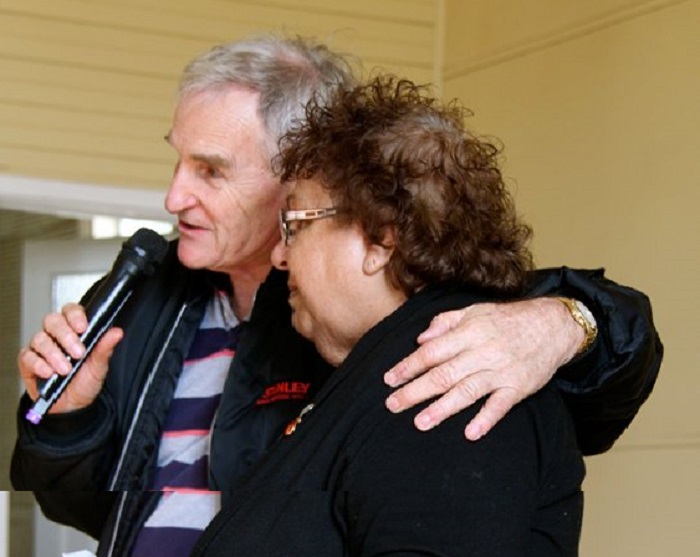Aboriginal and Islander members of the Uniting Church have boosted resources for youth work, mission and evangelism at the triennial United Aboriginal and Islander Christian Congress (Congress) National Conference, held from Saturday 13 to Thursday 18 January in Geelong, Victoria.
Congress will employ a full-time National President and a full-time youth worker for the next three years, to build on the strong work being done by young Indigenous church leaders in local communities around the country. Congress also rang in a number of generational leadership changes, electing Rev Garry Dronfield to the new role of National President.
Garry is a Bundjalung man in placement at Sylvania Uniting Church in Sydney, who served as Deputy Chairperson on the previous Congress National Executive. Garry is well known for his association with the God Squad motorcycle group. At his installation service, Garry preached on Daniel 3:1-30, The Golden Image and the Fiery Furnace, urging Congress members to stand firm in their faith and be confident in their belief in Jesus.
